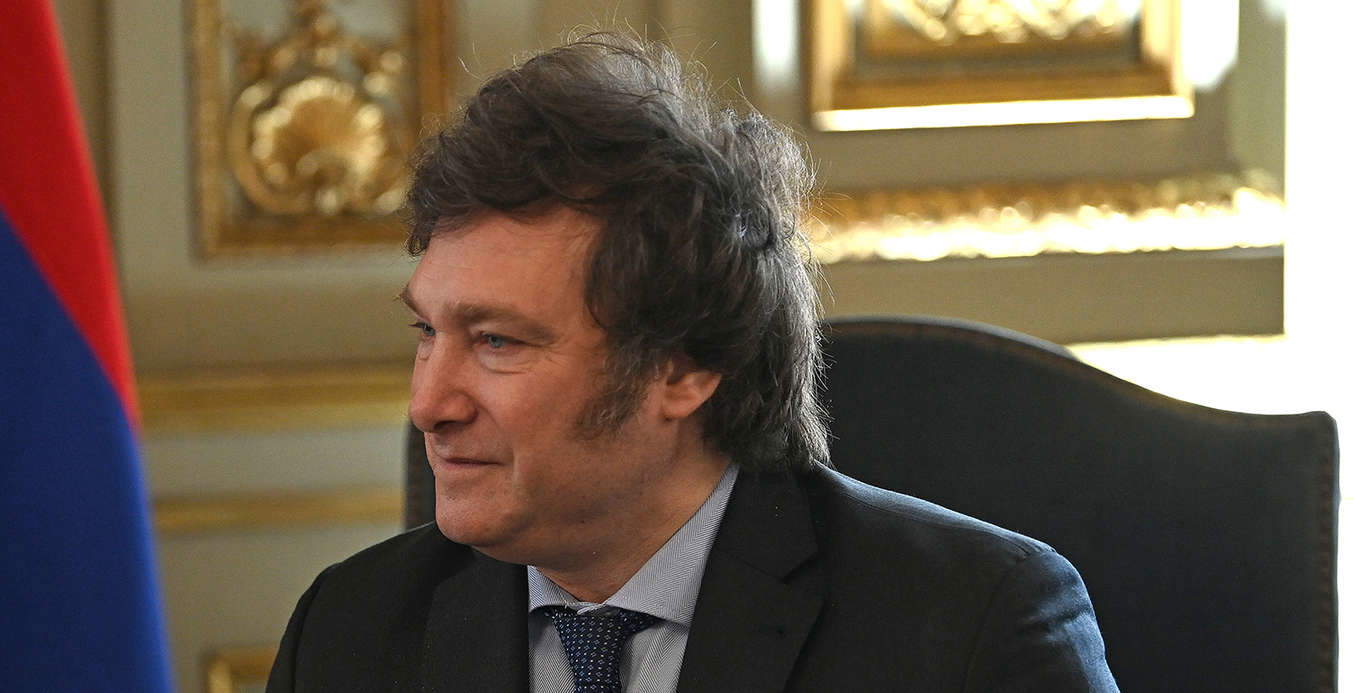Argentina's new president Javier Milei eliminates the Ministry of Culture
Argentina says goodbye to the Ministry of Culture: the department is one of those that the new president, Javier Milei, has decided to abolish, fulfilling one of his campaign promises to reduce the number of the country’s ministries from eighteen to eight. The measure was decided by Decree 8/2023 of Dec. 10, which establishes Argentina’s new ministries: Interior; Foreign Affairs, International Trade and Worship; Defense; Economy; Infrastructure; Justice; Security; Health; and Human Capital. Functions that have hitherto belonged to the Ministry of Culture will fall under those of the Ministry of Human Capital, which will also include responsibilities related to education, labor and social development.
“It shall be the responsibility of the Ministry of Human Capital,” the decree reads, “to assist the President of the Nation and the Chief of the Cabinet of Ministers, according to their competencies, in all matters relating to education, culture, individual and collective labor relations and needs; the legal regime of collective bargaining and professional associations of workers and employers; employment; vocational training and social security; assistance, promotion, care andsocial inclusion and human development; food security; poverty reduction; the development of equal opportunities for the most vulnerable sectors, particularly persons with disabilities, girls, boys and adolescents, women and the elderly; the protection of families and the strengthening of community organizations; and with regard to access to decent housing and habitat, and the fulfillment of commitments to treaties, international agreements and multinational agreements in matters within its competence.”
The new ministry, in relation to culture, shall, the decree further states, “develop and promote policies of institutional participation that strengthen the nation’s cultural identities,” “implement policies for the dissemination of cultural facts inside and outside the country”, “promote and disseminate the development of economic activities related to cultural industries,” “plan policies for financing cultural activities together with the private sector and civil society organizations,” promote “policies directed at the preservation, protection and enhancement of the Nation’s Cultural Heritage,” “promote policies to encourage and develop the Nation’s cultural heritage by fostering the creation, experimentation and democratization of access to cultural goods,” “promote policies of cultural integration and exchange among jurisdictions in the country and abroad through the formulation and celebration of national and international agreements, within its jurisdiction and participate in general national and international agreements, laws and regulations”, “to promote the production and exchange of scientific knowledge on issues related to cultural industries, sectoral employment creation and related services,” “to intervene within its jurisdiction in the promotion, organization and participation of exhibitions, fairs, competitions, audiovisual productions, performances and events where national and international productions are disseminated,” “to produce and promote content related to cultures in all its forms, seeking to reach audiences of all ages, throughout the country and with inclusive criteria, social, gender, religious and ethnic diversity,” “collaborate in the implementation of activities to produce and disseminate educational content aimed at strengthening and integrating national strategies for equity and improving the quality of education, in coordination with relevant areas,” “implement public policies aimed at recognizing and strengthening cultural diversity,” and “promote, disseminate and consolidate the development of Latino cultural integration.”
Leading the new Ministry of Human Capital will be Sandra Pettovello, a former television producer. The Ministry of Culture’s website is currently not updated-there is only a notice informing citizens that content updates are underway as part of the implementation of the decree.
Milei justified these drastic abolitions with the need to carry out a decisive spending review: the Argentine economy is suffering (more than 40 percent of the population lives in poverty according to the country’s National Institute of Statistics) and, according to the new president, immediate action is needed, starting with cutting political costs. “The previous political class,” he said during his inaugural address, “left the country on the brink of the greatest crisis in its history. We do not wish for the difficult decisions that will have to be made in the coming weeks, but unfortunately they have left us no choice.”
Pictured: Javier Milei
 |
| Argentina's new president Javier Milei eliminates the Ministry of Culture |
Warning: the translation into English of the original Italian article was created using automatic tools. We undertake to review all articles, but we do not guarantee the total absence of inaccuracies in the translation due to the program. You can find the original by clicking on the ITA button. If you find any mistake,please contact us.




























